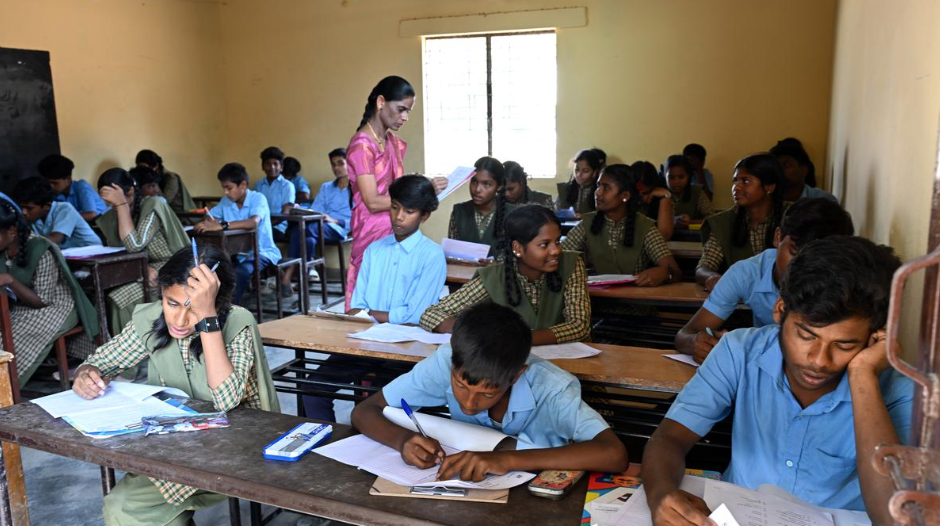Eliminate Demotivate: The Risk of Scrapping the No Detention Policy (GS Paper 2, Education)

Context:
- The Right to Education (RTE) Act, 2009 introduced the No Detention Policy (NDP), which aimed to prevent the humiliation and consequences of failure for students up to Class VIII.
- After 15 years of implementation, the NDP is now being phased out, with the reintroduction of detention for students in Classes V and VIII starting from the next academic year.
No Detention Policy (NDP)
- Objective: The NDP was introduced to ensure that no student was held back until Class VIII, aiming to reduce school dropouts and encourage continuous learning.
- Premise: Detention was identified as a key factor in high dropout rates. When the RTE was introduced, the dropout rate stood at 42.5% for students in Classes I to VIII. The situation was even more severe among marginalized communities, with 51.2% of Scheduled Castes (SCs) and 56.8% of Scheduled Tribes (STs) students dropping out.
- Implementation: The policy mandated that students who failed would receive special care and attention from teachers, to ensure that they meet the required learning outcomes.
End of NDP
- Amendment to RTE (2019): The RTE was amended to allow states to decide on detention policies, effectively diluting the core principle of the NDP.
- Reintroduction of Detention (2024): Starting next academic year, students in Classes V and VIII will be detained based on their academic performance, a decision motivated by concerns over poor learning outcomes.
Challenges with the Reintroduction of Detention
Poor Learning Outcomes:
- The 2023 Annual Status of Education Report (ASER) revealed that only 25% of students aged 14-18 could read a Class II-level text fluently, despite being promoted to higher classes.
- This indicates that students are advancing without mastering fundamental skills, undermining the learning process.
Teacher Shortages:
- Government schools face a shortage of over 8.4 lakh teachers, leading to overburdened staff unable to provide the necessary individualized care as per the RTE.
- Teachers struggle to address even basic educational needs, let alone provide remedial education for struggling students.
Contradictions with National Education Policy (NEP)
- The National Education Policy (NEP) envisions inclusive and innovative education, prioritizing universal access and the creation of equitable learning environments.
- The reintroduction of detention, which is inherently punitive, directly contradicts this vision.
- Detention is more likely to alienate students, especially those from marginalized communities, and hinder the broader goal of building an inclusive education system.
Conclusion and Way Forward
The lack of adequate resources, such as teacher availability and infrastructure, has limited the effectiveness of the NDP. While the reintroduction of detention may aim to address learning deficits, it carries significant risks, including increased dropout rates and further alienation of marginalized communities.
To effectively improve educational outcomes, the focus should shift toward:
- Addressing the teacher shortage and ensuring that educators can provide the necessary support to struggling students.
- Enhancing infrastructure and providing robust remedial programs.
- Aligning reforms with the inclusive vision of the NEP to create a sustainable and equitable education system that promotes continuous learning for all students, regardless of their background.
Reintroducing detention may temporarily address some educational deficiencies but could ultimately aggravate existing challenges. Instead, fostering an environment of support, care, and inclusivity is key to overcoming educational barriers.


